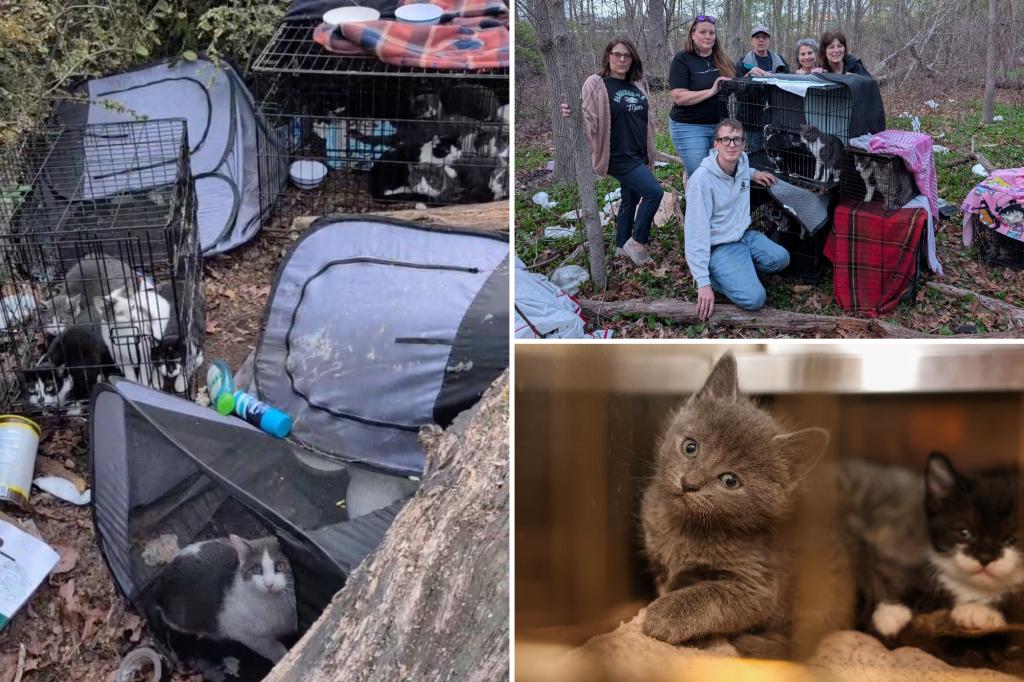Disturbing Discovery: 30 Cats Rescued from Squalid Conditions Near Long Island Park
Authorities rescued 30 cats from a makeshift camp near a Long Island park on Tuesday after reports of animal neglect. The cats, found living in filthy, overcrowded conditions, were suffering from malnutrition and untreated medical issues. Animal welfare officials described the scene as one of the worst cases of hoarding they’ve encountered, sparking renewed debates about pet ownership laws and mental health interventions.
Deplorable Conditions Shock Rescuers
When Suffolk County Animal Control arrived at the hidden campsite near Heckscher State Park, they discovered cats crammed into small cages, surrounded by feces, urine, and rotting food. The stench was overwhelming, and many animals had matted fur, open sores, and respiratory infections. “It was a nightmare scenario,” said Officer Maria Delgado, who led the rescue operation. “These cats had no access to clean water or proper shelter—just sheer neglect.”
Hoarding cases often involve complex psychological factors. According to the American Society for the Prevention of Cruelty to Animals (ASPCA), nearly 250,000 animals fall victim to hoarding annually in the U.S. Long Island has seen a 15% increase in reported cases since 2020, a trend experts link to pandemic-related isolation and financial strain.
The Thin Line Between Care and Cruelty
While the individual responsible for the cats claimed to be “saving” them, authorities emphasized that good intentions don’t justify harm. “Hoarding isn’t kindness—it’s a mental health crisis that endangers lives,” said Dr. Emily Carter, a veterinary behaviorist. “Animals in these situations suffer prolonged stress, disease, and even death from untreated conditions.”
Key red flags of hoarding include:
- Animals lacking veterinary care
- Overcrowded, unsanitary living spaces
- Owner denial of the problem despite obvious suffering
Legal and Community Responses
Local lawmakers are pushing for stricter penalties for neglect, including mandatory mental health evaluations for hoarders. “We need laws that prevent recidivism,” said Suffolk County Legislator Sarah Bennett. “These cases strain shelters and taxpayers—education and intervention must come first.”
Meanwhile, the rescued cats are receiving medical care at the Long Island Cat Rescue, where volunteers hope to rehabilitate and rehome them. “They’re timid but resilient,” said foster coordinator Jake Rivera. “With time, they’ll learn to trust again.”
How the Public Can Help
Animal advocates urge residents to report suspected hoarding early and support local shelters. Donations for the cats’ care can be made to the Suffolk County SPCA, which is also seeking foster families. “Every adoption frees up space to save another life,” Rivera added.
This case underscores the need for community vigilance and systemic change. As Dr. Carter noted, “Compassion means acting before suffering becomes a headline.”
To volunteer or donate, visit the Suffolk County SPCA’s official website or contact Long Island Cat Rescue directly.
See more CNET 247



